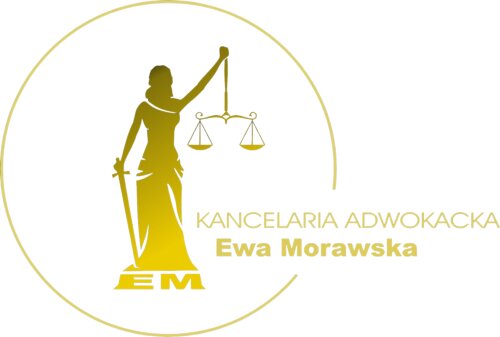
Best Divorce & Separation Lawyers in Poland
Share your needs with us, get contacted by law firms.
Free. Takes 2 min.
Free Guide to Hiring a Family Lawyer
Or refine your search by selecting a city:
List of the best lawyers in Poland

About Divorce & Separation Law in Poland
Divorce and separation laws in Poland are governed by the Family and Guardianship Code. The code outlines the legal grounds for divorce and separation, emphasizing both consensual and contentious divorces. Couples can opt for a judicial separation if they are not ready for divorce or wish to maintain their marital status for specific reasons. In Poland, divorce can be obtained when the marriage has irretrievably broken down. The process involves a judicial examination to determine the causes and consequences of the breakdown, with an emphasis on the welfare of any children involved.
Why You May Need a Lawyer
Handling divorce or separation processes can be complex and emotionally challenging. Here are some common situations where legal help may be necessary:
- Contested divorce, where one party does not agree to dissolve the marriage.
- Disputes over child custody, visitation rights, and child support.
- Division of matrimonial property and debate over financial settlements.
- Negotiations or adjustments regarding spousal support.
- Ensuring compliance with procedural formalities and court submissions.
- Interpreting legal language and understanding the implications of legal documents.
Local Laws Overview
Polish divorce and separation laws include several specific provisions that are essential to understand:
- Grounds for Divorce: There must be a complete and irretrievable breakdown of the marriage for a divorce to be granted.
- Property Division: The division of property is based on common ownership, and courts endeavor to divide property equitably.
- Child Custody and Support: The court prioritizes the child's welfare and best interests, potentially appointing a guardian ad litem.
- Spousal Support: Alimony may be granted under specific circumstances and is dependent on both needs and the financial capacity of the parties.
- Separation: Judicial separation is an alternative to divorce, involving similar processes but without legally ending the marriage.
Frequently Asked Questions
What are the basic grounds for divorce in Poland?
The basic ground for divorce in Poland is the irretrievable breakdown of the marriage. This includes severe and lasting incompatibility, and a complete breakdown of matrimonial life.
Can both parties agree to a divorce without proving fault?
Yes, couples can agree to a no-fault divorce, which is less adversarial and typically quicker.
How is property divided during a divorce?
Property accumulated during the marriage is generally divided equally unless there is a prenuptial agreement or the court decides otherwise based on fairness.
What happens to prenuptial agreements in divorce proceedings?
Prenuptial agreements are generally respected in Polish divorce proceedings as long as they are legally sound and do not contravene public policy or fairness.
Who determines child custody issues?
The court determines child custody based on the best interests of the child, potentially with input from psychological experts or social workers.
Is alimony automatic in a Polish divorce?
Alimony is not automatic. It is based on the earning capacities and needs of both parties and is decided by the court on a case-by-case basis.
What are the legal fees associated with divorce?
Legal fees can vary widely, depending on whether the divorce is contested or uncontested, complexity, and attorney charges. Court fees are also applicable.
Can foreign nationals get divorced in Poland?
Yes, if at least one spouse is a resident in Poland, divorce proceedings can typically be conducted in Poland.
What is the duration of the divorce process?
The duration varies, with uncontested divorces potentially resolved in a few months, whereas contested cases might last significantly longer.
Can divorce orders be appealed?
Yes, divorce orders can be appealed, but specific grounds must be demonstrated within the legal timeframe post-judgment.
Additional Resources
For those seeking more information or assistance, consider exploring resources from:
- Polish Bar Association: Offers directories for finding a certified lawyer.
- Family Court Services: Provides guidance on divorces and separations.
- Legal Advice Centers: Provides pro bono legal assistance to those who qualify based on financial need.
- Government Legal Aid Programs: May assist if financial resources are limited.
Next Steps
If you are considering or in the process of a divorce or separation and require legal assistance, follow these steps:
- Consult with a specialized family lawyer to discuss your situation and legal options.
- Gather all relevant documentation, including financial records, marriage certificates, and correspondence.
- Consider mediation to resolve amicable disputes outside of court.
- Ensure any agreements or settlements are reviewed by legal professionals before finalizing.
- Attend court hearings as needed with legal representation.
It is crucial to approach the process with thorough preparation and legal guidance to ensure your rights and interests are adequately protected.
Lawzana helps you find the best lawyers and law firms in Poland through a curated and pre-screened list of qualified legal professionals. Our platform offers rankings and detailed profiles of attorneys and law firms, allowing you to compare based on practice areas, including Divorce & Separation, experience, and client feedback.
Each profile includes a description of the firm's areas of practice, client reviews, team members and partners, year of establishment, spoken languages, office locations, contact information, social media presence, and any published articles or resources. Most firms on our platform speak English and are experienced in both local and international legal matters.
Get a quote from top-rated law firms in Poland — quickly, securely, and without unnecessary hassle.
Disclaimer:
The information provided on this page is for general informational purposes only and does not constitute legal advice. While we strive to ensure the accuracy and relevance of the content, legal information may change over time, and interpretations of the law can vary. You should always consult with a qualified legal professional for advice specific to your situation.
We disclaim all liability for actions taken or not taken based on the content of this page. If you believe any information is incorrect or outdated, please contact us, and we will review and update it where appropriate.
Browse divorce & separation law firms by city in Poland
Refine your search by selecting a city.













